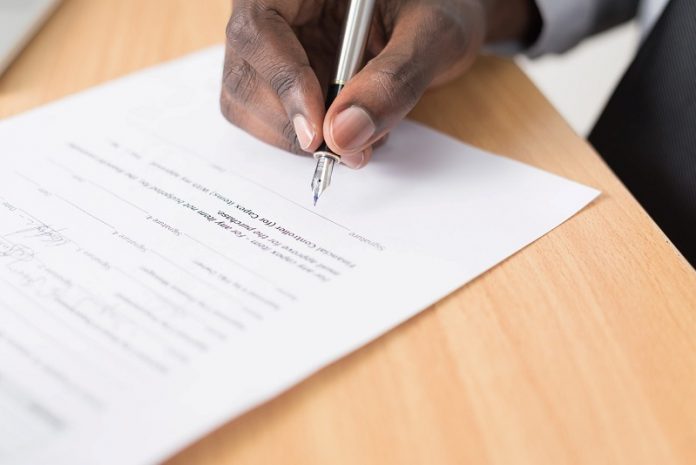Power of Attorney (PoA) is the legal authorisation for an individual to act on behalf of another. Most people have heard of domestic PoA, often appointed when an individual is elderly, disabled or unwell, requiring a trusted person to handle their affairs, but PoA is also beneficial in a commercial setting.
Commercial PoA allows an appointed individual to act on behalf of the usually responsible person, which is normally a director. The responsibilities of the individual can be specified in the PoA, or they can be authorised to carry out any of the directors’ usual duties. Bear in mind that it’s important to be confident that the chosen individual is trusted, reliable and sufficiently knowledgeable to carry out the appointed duties.
Any size business can benefit from appointing PoA. If the business requires a decision-maker or has legal or financial responsibilities, it’s likely that the security of a PoA will prove useful. Here are some examples of when PoA can be beneficial in a commercial setting.
Operating out-of-hours
The majority of businesses will have fixed working hours, such as 9-5, Monday through Friday. Despite this, there are a variety of reasons why an individual may need to work outside of these hours, such as to sign a contract, finalise a deal, or liaise with a client or customer that resides in a different time zone.
In out-of-hours instances, the director may not always be available at the drop of a hat. Appointing a responsible person through PoA for these situations means that there is always an individual available, no matter what time of day it may be. The PoA may limit to out-of-hours responsibilities only, or it can be broadened to include other useful scenarios.
Signing documents
It’s common for businesses to encounter documents that require a signature. There may be routine documents that require regular signatures, but since they are recurring, no input is needed from the director. Having a PoA appointed for this duty means they can sign off on these documents on behalf of the main decision-maker, alleviating a minor job from the director’s large list of responsibilities.
Sometimes a document is presented that urgently requires a signature, but there’s no guarantee that the director will be available at that moment. Having an alternative individual that is authorised by PoA to sign important documents can help reduce potential disruption to the business caused by a delay in the signature. This also means that the director will not need to be disturbed unnecessarily.
Acting in absence
If the director is often away from the business’ headquarters, appointing a responsible person to act in their absence is advisable. This could be to cover a short-term absence, such as the director being away for a few hours, or a day, or it could be covering longer absences, such as weeks, or even months at a time. Having a PoA appointed for these situations can ensure that any important decisions maintain a quick turnaround, even with no director present. This also ensures that the director does not need to be disturbed whilst they are away.
A temporary PoA can be appointed to grant responsibility to an individual for an agreed short-term period. This is a good option if the director is taking arranged leave, such as a holiday or business trip, but it doesn’t cover the business against emergencies. Temporary PoA is appointed in advance for a specific period, but instances such as illness or grievance leave are often not foreseen in time to orchestrate this.
No matter the size or nature of the business, if there is any risk of the director being unavailable at a critical moment, appointing a PoA is advisable. A responsible person with PoA can provide a secure safety net for the business to continue running smoothly.
John Roberts is a Partner and Director at Austin Lafferty Solicitors. John has been with the firm for almost 20 years, with experience in all areas of business law.







